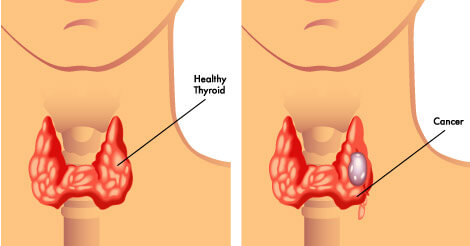Introduction:
Welcome to our comprehensive guide on thyroid disorders. The thyroid gland plays a crucial role in regulating various bodily functions, including metabolism, growth, and energy levels. When the thyroid gland malfunctions, it can lead to a range of disorders that affect overall health and well-being. In this guide, we will explore different thyroid disorders, their causes, symptoms, diagnosis, treatment options, and lifestyle management strategies to help individuals effectively manage their thyroid health.

Understanding the Thyroid Gland:
- Anatomy and Function: Provide an overview of the thyroid gland’s location, structure, and its role in producing thyroid hormones (thyroxine – T4 and triiodothyronine – T3) that regulate metabolism and other bodily functions.
- Hormonal Regulation: Explain the feedback loop involving the hypothalamus, pituitary gland, and thyroid gland in regulating thyroid hormone production.
Common Thyroid Disorders:
- Hypothyroidism:
- Causes: Explore the primary causes of hypothyroidism, including autoimmune thyroiditis (Hashimoto’s thyroiditis), iodine deficiency, thyroid surgery, radiation therapy, and certain medications.
- Symptoms: Describe the signs and symptoms of hypothyroidism, such as fatigue, weight gain, cold intolerance, dry skin, and depression.
- Diagnosis: Discuss the diagnostic tests used to detect hypothyroidism, including thyroid function tests (TSH, T4, T3), thyroid ultrasound, and antibody tests.
- Treatment: Outline treatment options for hypothyroidism, including synthetic thyroid hormone replacement therapy (levothyroxine), dietary iodine supplementation (if iodine deficiency is the cause), and lifestyle modifications.
- Hyperthyroidism:
- Causes: Explore the primary causes of hyperthyroidism, including autoimmune conditions (Graves’ disease), nodular thyroid disease, thyroiditis, and excessive iodine intake.
- Symptoms: Describe the signs and symptoms of hyperthyroidism, such as weight loss, rapid heartbeat, anxiety, heat intolerance, and tremors.
- Diagnosis: Discuss the diagnostic tests used to detect hyperthyroidism, including thyroid function tests, thyroid ultrasound, radioactive iodine uptake test, and thyroid scan.
- Treatment: Outline treatment options for hyperthyroidism, including antithyroid medications (methimazole, propylthiouracil), radioactive iodine therapy, thyroidectomy (surgical removal of the thyroid gland), and beta-blockers to manage symptoms.
- Thyroid Nodules and Goiter:
- Causes: Explain the causes of thyroid nodules and goiter, including iodine deficiency, autoimmune thyroid disease, thyroid cancer, and benign tumors.
- Symptoms: Describe the signs and symptoms of thyroid nodules and goiter, such as neck swelling, difficulty swallowing or breathing, and voice changes.
- Diagnosis: Discuss the diagnostic tests used to evaluate thyroid nodules and goiter, including thyroid ultrasound, fine-needle aspiration biopsy, and thyroid function tests.
- Treatment: Outline treatment options for thyroid nodules and goiter, including observation, thyroid hormone suppression therapy, radioiodine ablation, surgery, and radioactive iodine therapy (for hyperfunctioning nodules).
Lifestyle Management and Prevention:
- Diet and Nutrition: Provide dietary recommendations for individuals with thyroid disorders, including foods rich in iodine, selenium, and other nutrients essential for thyroid function.
- Stress Management: Discuss the importance of stress management techniques such as mindfulness, meditation, and relaxation exercises in managing thyroid health.
- Regular Exercise: Highlight the benefits of regular physical activity in supporting thyroid function and metabolism.
- Medication Adherence: Emphasize the importance of adhering to prescribed medications and attending regular follow-up appointments with healthcare providers for optimal management of thyroid disorders.
Support Resources:
- Support Groups: Provide information on local and online support groups for individuals living with thyroid disorders, where they can connect with others facing similar challenges.
- Educational Materials: Offer downloadable resources, brochures, and educational materials on thyroid disorders for further learning and understanding.
- Healthcare Provider Directory: Provide a directory of endocrinologists, thyroid specialists, and healthcare providers specializing in thyroid disorders for individuals seeking medical assistance.
Conclusion:
Thyroid disorders can significantly impact an individual’s quality of life, but with proper understanding, management, and support, individuals can effectively navigate their thyroid health journey. By empowering individuals with knowledge about thyroid disorders, their causes, symptoms, and treatment options, we aim to promote awareness and facilitate better management of thyroid health. Remember, you are not alone in your thyroid journey, and support and resources are available to help you every step of the way.
